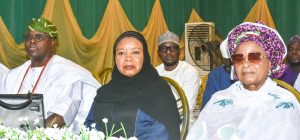
The Federal Government spent nothing less than N13.17tn between 2016 and March 2022 under the regime of the President, Major General Muhammadu Buhari (retd.), an analysis by The PUNCH has revealed.
Findings by The PUNCH also showed that during the same period, the government budgeted N4.4tn for education amidst constant criticism by stakeholders, including the Academic Staff Union of Universities, about the low funding of the sector.
According to the information from the Debt Management Office, from 2016 to March 2022, servicing local debts gulped N10.77tn, while the government spent N2.40tn ($7.84bn) to service external debts.
The amount spent on external debt servicing was converted to Naira at the CBN’s exchange rate for the year. For instance, the naira-dollar average exchange rate for 2016 was N197 and N305 in 2017 respectively. It was N305 in 2018 and N360 in 2019. It closed at N380 and N420 in 2020 and 2021 respectively.
From January to December, a total of N1.23tn was spent to service the country’s domestic debts in 2016, during the same year N369.60bn was budgeted for education.
The figure for domestic debt servicing rose to N1.48tn in 2017 while the budget for education in the same year was N550bn.
In 2018, the country’s domestic debt servicing bill rose to N1.8tn with education at N605.8bn.
The cost of domestic debt servicing came down a bit in 2019 to N1.69tn with N620.50bn budgeted for education.
In 2020, debt servicing rose again to N1.85tn with education gulping N671.7bn. By 2021, domestic debt servicing rose to N2.05tn with education gulping N742.52bn.
On the other hand, external debt servicing gulped $353.09m in 2016. It went up to $464.05m in 2017 and jumped up to $1.47bn in 2018.
In 2019, the country spent $1.33bn on external debt servicing. In 2020, external debt servicing gulped $1.56bn. By 2021, it became $2.11bn.
Between January and March 2022, Nigeria spent N668.69bn on domestic debt servicing, while it spent $548.79m on external debt servicing while education gulped N923.79bn.




电报中文版下载 不以广告为主要盈利模式,更专注于用户体验和隐私保护。